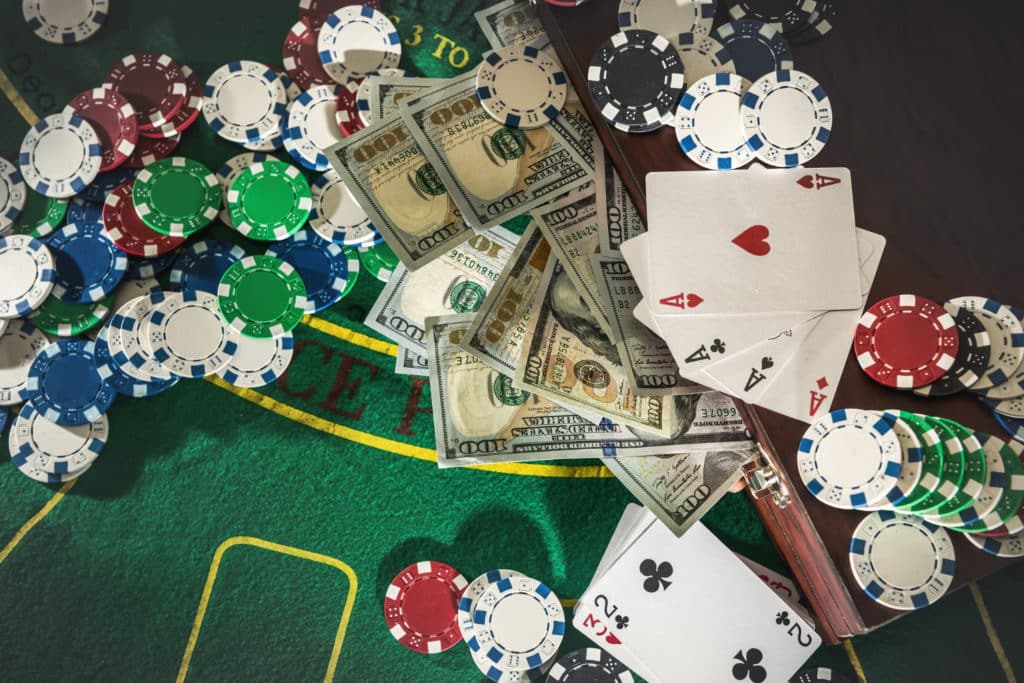Poker captivates millions with its blend of skill, strategy, and adrenaline. Its appeal spans casual home games to prestigious world tournaments, attracting diverse cultures and age groups.
Various poker variants offer unique rules and experiences, from fast-paced short-handed games to strategic full games. The essence of poker lies in its mix of risk-taking and calculated tactics. Players must master bluffing and make decisions based on probability, psychology, and game theory.
This combination makes poker a compelling mind sport, not just a game of chance.
How do you play poker?
Poker is a game that comes in many variants. Among the most popular are Texas Hold ’Em, Omaha Hold ’Em, and Seven Card Stud. Each of these games, while distinct in their rules and strategies, all share the fundamental principles of poker, making them attractive for players of all levels.
To understand poker, imagine sitting at a table with other players, each of you trying to assemble the best possible hand of cards. In Texas Hold ’Em, the most famous variant, the game begins with each player receiving two private cards, known as ‘hole cards’. The dealer then lays out five community cards in a series of stages – the flop (first three cards), the turn (the fourth card), and the river (the fifth card).
These cards are available for all players to use in combination with the cards on their hand with the ultimate goal of having the winning hand.

Omaha Hold ’Em is similar to Texas Hold ’Em but with a twist: each player is dealt four hole cards and must use exactly two of them with three of the five community cards to make their hand, creating more strategic possibilities.
In contrast, Seven Card Stud eliminates community cards, with players receiving a mix of face-down and face-up cards over several betting rounds to make the best five-card hand.
Understanding is key
Understanding hand rankings, from high card to royal flush, is crucial in poker. The game is deeply rooted in psychology and strategy, as players bet against each other, using chips to represent the strength of their hand. Reading opponents and their betting patterns is essential to determine if they are bluffing or holding a strong hand. Bluffing, where a player with a weak hand bets aggressively to convince others they have a strong hand, or vice versa, adds a layer of psychological warfare.
How to win at poker
The game of poker with its element of strategy combined with skills, is still a casino game where it all comes down to having the winning hands.
The poker playing cards will be the same, but even the best starting hands in poker can fold to a bluff. That is why the importance of skills is so crucial. Playing intelligently and calling the other players’ deception strategies while deceiving them at the same time is an equally important factor when it comes to winning in poker.
This “How to play poker” guide might show you the ropes, but experience will teach you how to actually play and win the game.

Learn to play poker for money
In poker, skill significantly outweighs luck in the long run. Winning substantial sums of money in poker is not solely about getting good cards, but about how skillfully you play the hands you’re dealt.
- Unlike many other casino games, poker pits players against each other, not against the house
- This means your winnings come from other players, not the casino.
- This aspect opens the door for a skilled player to consistently win over time.
The essence of poker strategy lies in the decisions you make, particularly in actions like raising, calling, and folding. Each of these choices is crucial in dictating the flow of the game and influencing your chances.
What is a raise?
A “raise” is when a player increases the bet, indicating a strong hand or a strategic bluff. Raising can pressure opponents into folding, even if they have potentially better hands, by making it too costly for them to continue betting.
What is calling?
“Calling” is when a player matches the current bet to stay in the hand. This action suggests that a player has a hand worth playing but is not strong enough to raise, but it can also be part of a strategy to fool your opponent.
What is folding?
“Folding” is when a player gives up on the current hand, relinquishing their chance to win the pot. Knowing when to fold is as crucial as knowing when to raise or call. Expert players understand that folding a poor hand early can save chips and thereby preserving their bankroll.
Skilled poker players excel in reading the game, understanding probabilities, and interpreting other players’ actions and tells. They also excel in managing their emotions and bankroll, making disciplined decisions based on logic rather than impulse. This strategic depth transforms poker into a game where experienced and knowledgeable players can consistently outmaneuver and outplay their opponents, leading to significant financial gains over time. While luck plays a role in the short term, in the long run, skills are the factor that dominates in poker which makes it appealing to those who prefer games that requires strategy.

Play poker online
For beginners keen on learning poker, starting with free-play poker online is a wise choice. This approach allows you to grasp the game’s fundamentals without the pressure of real-money stakes.
Online platforms offering free poker provide a risk-free environment that lets you:
- Learn the ropes of the game.
- Experiment with strategies
- Understand hand rankings
- Get comfortable with the pace of the game.
It’s a practical step before diving into real-money online casinos or booking a trip to Las Vegas. This method also helps in building confidence and decision-making skills crucial to poker. When you feel comfortable enough you can start playing with real money.
Playing poke with money online
When playing poker in an online casino there are different ways to fund your game. Some prefer the comfortability of using a credit card as a payment method while others prefer using cryptocurrency.
Bitcoin poker has experienced a huge rise in popularity due to the advantages it gives to play with crypto. Whatever cryptocurrency you prefer you can find a long list of reliable and trustworthy Bitcoin or Ethereum poker sites where you can play poker. We hope this article has been helpful and equipped you on how to play poker and that you will use this knowledge when you sit down at the poker table or on your computer.












